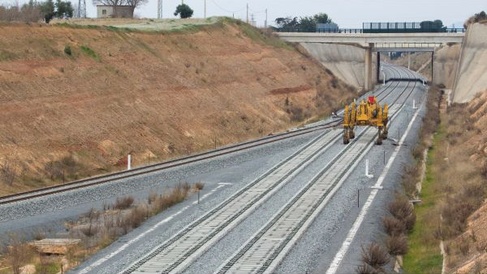
In April Ground Engineering announced that Network Rail has launched its control period 7 (CP7) funding programme with plans to invest £45.4bn across England, Wales, and Scotland, aiming to create a more resilient railway system against the impacts of climate change.
With £2.8bn earmarked for climate change mitigation over the next five years, the company intends to strengthen its infrastructure against extreme weather incidents. To achieve this, Network Rail will focus on enhancing drainage systems, refurbishing cuttings and embankments and recruiting additional drainage engineers. They plan to construct or renovate over 600,000 metres of drains and strengthen 482km of cuttings or embankments. Additionally, they will implement measures such as installing smart sensors and CCTV at high-risk sites to provide early warnings and improve response times.
These investments will support projects aimed at preventing landslides and flooding, along with enhancing monitoring and maintenance capabilities. In addition to climate resilience efforts, Network Rail plans to allocate funds for renewals, maintenance, support functions, operations and a risk fund to address unforeseen events.
The funding has been allocated in direct response to the recommendations made in ‘A Review of Earthworks Management’, commissioned by Network Rail in 2020 as a response to the tragic Stonehaven train derailment. Professor Lord Robert Mair, founder of the Centre for Smart Infrastructure and Construction at the University of Cambridge (CSIC), led the independent task force appointed for the Review. Tasked with evaluating the existing earthworks management and risk control framework, the team delved into current practices while drawing comparisons with similar approaches in various sectors and countries.
In the Review, the approach of Lord Mair to earthworks management emphasised the critical role of water management, particularly in understanding soil pore water pressure for slope stability. His Review highlighted the need for Network Rail to improve its knowledge of pore water pressure distribution in earthwork slopes to enhance slope behaviour understanding, especially in response to adverse weather and climate change. Mair underscored the significance of effective drainage systems for safe rail operations, advocating a holistic approach to water management and the integration of drainage systems to maintain earthworks stability. The Review suggested investing significantly in updating monitoring and surveillance methods, particularly in the realm of earthworks management. Although Network Rail had already explored some advancements, such as the wireless tiltmeter system, which showed great promise in detecting failures and providing data on slope or embankment performance, the recommendation was to expand the use of such sensor systems, especially on critical slopes and embankments, along with measuring pore water pressure where necessary.
Additionally, the Review proposed more frequent use of surveillance technologies like helicopters and drones. Helicopter flights, especially after heavy rainfall, can facilitate early detection of earthwork failures. Drones, despite current regulatory limitations, offer substantial potential in enhancing earthworks management by identifying track obstructions, changes, and mapping features. Drawing on the research by Dr Sakthy Selvakumaranand at the University of Cambridge, the Review gave particular emphasis to InSAR (Interferometric Synthetic Aperture Radar), a satellite technology which offers a powerful means of mapping ground deformation using radar images collected from orbiting satellites. It is a valuable tool for monitoring ground deformation and providing early warnings for threats to various infrastructure, including railways, contributing to improved safety and maintenance practices.
In recent years, InSAR has been extensively utilized for monitoring infrastructure such as bridges and dams as well as landslides and opencast mining installations to provide early warnings of potential failures. Furthermore, the Centre for Smart Infrastructure and Construction (CSIC) at Cambridge University has developed a cutting-edge system to enhance railway safety. In collaboration with Network Rail, CSIC's technology involves attaching fibre-optic cables to mesh netting along a 100-meter length of railway. This innovation enables the detection of strain changes induced by rockfalls, allowing for the early identification and prediction of problematic areas.
Professor Mair and the researchers at CSIC are delighted to hear about this funding programme initiative, as it demonstrates how research and expert advice can efficiently address real-world problems with tangible solutions.
References:
Sivasakthy Selvakumaran, Cristian Rossi, Andrea Marinoni, Graham Webb, John Bennetts, Elena Barton, Simon Plank, Campbell Middleton Combined InSAR and terrestrial structural monitoring of bridges, IEEE Transactions on Geoscience and Remote Sensing, Vol. 58, Issue 10, 7141-7153
Keenan, P., Xu, X., Kecharvarzi, C., Garnier, O. and Esslemont, N. 2019. Fibre optic sensing for safer real-time rockfall monitoring of rail cuttings.
